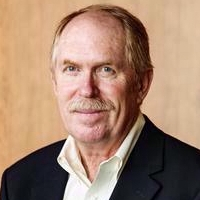EM FOCO
Michael L. Benson

Interview with Michael L. Benson
Professor of Criminal Justice at University of Cincinnati. Fellow of the American Society of Criminology. Has published extensively on white-collar and corporate crime in leading journals, including Criminology. Among others, co-edited “The Oxford Handbook on White-Collar Crime” with Shanna R. Van Slyke and Francis T. Cullen and co-authored “Undestanding White-Collar Crime: An Opportunity Perspective” with Sally S. Simpson.
january, 2021.
How do you analyze the White-Collar Crime nowadays?
Most of the time, I think about white-collar crime from the perspective of opportunity theory, that is to say that I am try to figure out how particular types of crimes are committed. What is the opportunity structure for a particular form of white-collar crime? For example, what makes embezzlement easy or hard for an employee of an organization or when is it easy or hard to illegally dispose of toxic wastes. I believe that if you understand how an offense is committed and the circumstances under which this is easy or hard, you can then potentially develop ways to reduce the occurrence of that type of offense. I am also interested in the social and demographic factors, such as age, race, gender, and social class, that influence who has access to particular types of criminal opportunities, since so many white-collar crimes are occupationally based.
In your opinion, the opportunity theory could explain both corporate and occupational crime?
Yes, I think opportunity theory can be used to explain both corporate and occupational crime. It is harder to use in the case of corporate crime, because you have to understand the conditions inside of a corporation that make or allow people to be more or less likely to engage in illegal activities. For occupational crime, you only have to put yourself in the position of the offender and think about how he or she views the situation in which a criminal opportunity is present.
What suggestions could you do to improve the research in this theme?
The biggest problem with most research on white-collar crime is that it is almost always retroactive. We only study white-collar crimes after they have happened, so we never really know if your interpretations of why they have happened are correct and we are not able to make predictions about what will happen in the future. I think researchers should look for situations that present opportunities to conduct quasi-experimental research designs. For example, whenever a new law or regulation is going to be imposed that may affect the opportunity structure for a particular type of offense, researchers should make predictions on how the change will affect the rate of that crime and then gather data on that type of offense before and after the law is imposed to see if the prediction is correct.
What advice could you give to young student who want to continue their studies and research on corporate and occupational crimes ?
I think students should be well versed in standard criminological theories and then think about if and how they might be applied to corporate and occupational crime. I started thinking about opportunity theory after reading about situational crime prevention and routine activities theory, which at the time were focused exclusively on ordinary street crimes. I asked myself can these theories be applied to white-collar crimes? If so, how? How do they have to be modified? I would also encourage students to study whatever they are interested in. What do you want to know? My dissertation research developed out of my interest in a very simple question. What happens to a middle or upper class person after they have been exposed and convicted of a white-collar crime? How do they handle it? How are they treated by their families and friends? How does it affect their occupational trajectories? I just wanted to know the answers to these questions.
